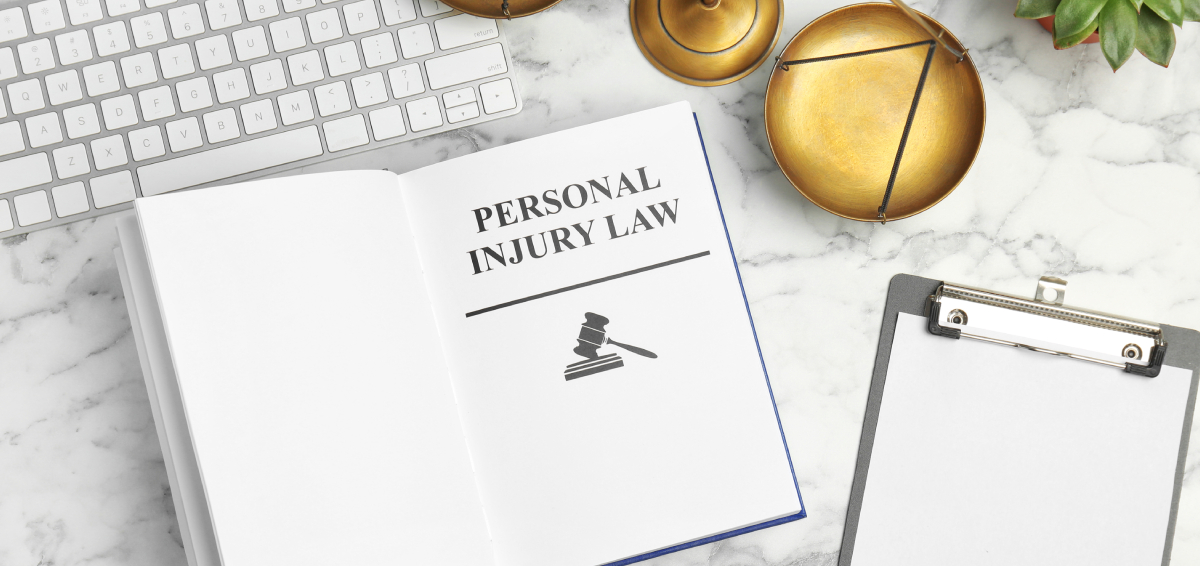The Role of Negligence in Personal Injury Cases

Someone trying to receive compensation for injuries they suffered because of another person’s carelessness must understand how negligence works in personal injury cases. In Florida, personal injury claims due to negligence are built around the idea that harm was caused by someone else not acting responsibly. This blog will explore what law defines as negligence, give instances where negligence has resulted in personal injuries, describe methods to prove negligence within a court setting, discuss comparative fault or “comparative negligence,” and how this concept affects the amount awarded for damages.
Legal Definition of Negligence
Negligence according to the law is when someone does not follow the average care level that a reasonably careful person would have shown if they were in the same circumstances. When we talk about claims for personal injuries due to negligence, it implies that some individuals or companies did not do what they should to prevent harm towards others. To prove negligence in Florida’s laws, you must show four main elements: duty, breach of duty, causation, and damages.
- Duty of Care: The defendant must owe a duty of care to the plaintiff. This shows that they were responsible for taking action to avoid harm.
- Breach of Duty: The defendant did not act as an ordinary prudent person should when faced with similar situations.
- Causation: The defendant’s breach of duty caused the plaintiff’s injuries. This requires showing that the injuries would not have happened if it wasn’t for the defendant’s actions or lack thereof.
- Damages: The plaintiff experienced real damage, including costs for medical treatment and earnings they couldn’t earn due to the injury, pain, and emotional distress.
Examples of Negligence Leading to Personal Injuries
There are many examples of negligence that could result in personal injury. These examples help to show how negligence works in actual situations.
- Car Accidents: The most frequent illustration of negligence is when a driver triggers an automobile accident by not obeying traffic rules. This includes actions like speeding, going through red lights, or driving while intoxicated.
- Slip and Fall: Property owners are responsible for keeping their premises safe. If a property owner does not care for dangerous situations such as wet floors, carpets that are not fixed or lousy lighting, and somebody gets hurt, they might be considered negligent.
- Medical Negligence: When healthcare professionals don’t meet the expected standard of care, it is known as medical negligence. For example, suppose a doctor’s actions during surgery or in diagnosing an illness are not careful, and this causes terrible injuries or death for the patient. In that case, they can be considered negligent and legally responsible for their mistake.
- Defective Products: Manufacturers and sellers must guarantee that their products are secure for customers. When a faulty product leads to injury, it can be seen as negligence by either the manufacturer or seller.
How to Prove Negligence in Court
To establish negligence in court, one must follow a systematic method that shows the defendant’s behavior falls under the legal description of negligence. These are the steps for proving negligence in the courtroom:
- Gather Evidence: Get all the needed proof, such as medical records, accident reports, pictures, and what witnesses say. These are very important to show the reality of this situation.
- Expert Testimony: Occasionally, we may require expert witnesses to clarify intricate topics and support the case. These professionals could be doctors or accident reconstruction specialists.
- Illustration of the Four Elements: Show straightforwardly how the defendant was responsible for providing care, how they broke this duty, how the breaking caused harm and the amount of damage.
- Legal Counsel: It is essential to have a personal injury lawyer. They can assist in managing the legal procedure, gather and present evidence, and argue for the plaintiff to show negligence.
Comparative Negligence and Its Impact on Compensation
The rule of comparative negligence, wherein the share of blame can lower the compensation amount for plaintiffs, is adhered to by Florida. This signifies that if a plaintiff is found partially responsible for their injuries, the compensation they receive will be reduced in proportion to their share of fault.
For instance, if a person bringing the case gets $100,000 in damages but is judged to be 20% liable for the accident, they will get 20% less of this sum and receive an award of $80,000. This principle ensures that even when the person who starts legal proceedings is partly responsible for their injuries or losses – their compensation can be reduced by a proportion linked to how much blame they hold.
The comparative fault also highlights the necessity of precisely determining the proportion of the blame for each party. It can affect talks to resolve the case, as both sides have to consider their own responsibilities and the impact this has on what they might receive in compensation.
Comparative negligence, or the “pure comparative fault” rule, is crucial to comprehend when dealing with a personal injury claim based on negligence in Florida. It emphasizes that careful preparation and expert legal help are necessary to correctly distribute blame and ensure the injured party gets suitable compensation for their harm.
If you are in Florida and have a personal injury case related to negligence, you must talk with a personal injury lawyer in Jupiter who knows the law. At Slinkman, Slinkman & Wynne, P.A.., we have much experience dealing with claims of personal injury caused by negligence. Our team commits to assist clients in understanding the complexities of their cases and getting them rightful compensation. Contact us today to analyze your situation and determine how we can help you get the best result.
Recent News
Understanding the Burden of Proof in Personal Injury Cases
ssw9622025-05-02T02:43:08-04:00March 18, 2025|
Most Common Types of Personal Injury Cases and Compensation
ssw9622025-05-02T02:37:38-04:00March 11, 2025|
Who Can File a Wrongful Death Claim in Palm Beach Gardens?
ssw9622025-05-02T02:33:56-04:00March 4, 2025|



